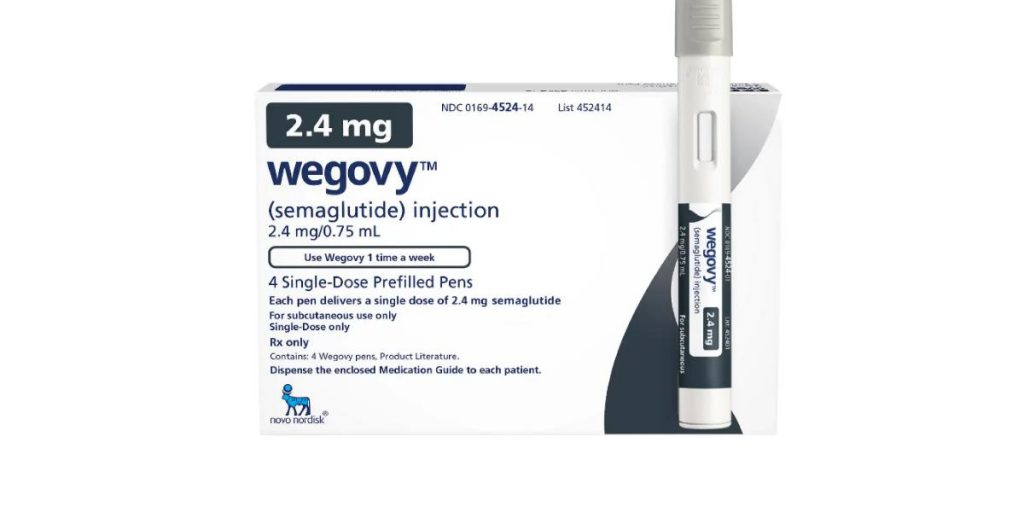A recent trial suggests that a weight loss injection could decrease the likelihood of heart attacks and strokes by 20%.
Pharmaceutical company Novo Nordisk assessed the effects of the once per week injection, Wegovy, on people aged over 45 who were overweight or obese with a history of heart disease.
In the SELECT trial, they discovered that the participants’ risk of a major cardiovascular event decreased by 20% compared to those receiving a placebo.
- Wegovy: NHS weight loss drug is no magic pill, experts warn
- Semaglutide: guidance issued on global shortage of diabetes drug
People living with obesity are at a greater risk of strokes and heart attacks due to being more likely to develop heart issues and high blood pressure. Novo Nordisk believes that using Wegovy to lose weight can tackle these health concerns.
SELECT involved 17,000 participants with no history of diabetes. Its results of a 20% decreased risk of a major cardiovascular event surpassed the 15% to 17% as expected by investors and analysts.
This could encourage insurers in the US and health authorities in Europe to provide Wegovy to a wider group of patients due to the drug’s potential.
Martin Holst Lang, executive vice president for development at Novo Nordisk, claims that it has “the potential to change how obesity is regarded and treated”.
The Danish organisation plans to file for regulatory approvals of a label indication expansion for Wegovy in the United States and European Union this year to cover the discovered health benefits.
Professor Stephen O’Rahilly, Director of the MRC Metabolic Diseases Unit at the Institute of Metabolic Science at University of Cambridge, said: “Simply put, a drug which acts to reduce body weight by targeting appetite, if taken long term by people who are overweight or obese, significantly reduces their risk of serious cardiovascular events, such as heart attack.

“The obvious conclusion of these findings is that we should view obesity as a medical condition, like hypertension (high blood pressure), where effective and safe drug therapy can contribute to reducing serious adverse health outcomes.”
Wegovy contains semaglutide, a GLP-1 agonist developed for people with type 2 diabetes, which makes people feel fuller for longer and leads to an increased weight loss of approximately 15% compared to those dieting and exercising.
Professor Naveed Sattar, Professor of Metabolic Medicine at University of Glasgow, said: “The one thing to caution is we do not know to what extent the weight loss effects of semaglutide as opposed to its other direct effects on blood vessels or the heart, account for the 20% reduction in cardiovascular events, and more data are needed to try to work this out.”
- Semaglutide: link between suicide and weight loss jabs to be reviewed
- Nature’s Ozempic: how effective is berberine for weight loss?
Wegovy and its sister drug and another diabetes medicine, Ozempic, have recently been associated with negative side effects. The Food and Drug Administration (FDA) has received over 60 reports of patients having suicidal thoughts when taking Wegovy or Ozempic.
There is also an increasing number of patients experiencing stomach and toilet issues, such as extreme constipation and uncontrollable bowel movements.
People who stop taking Wegovy after a prolonged period of time can experience major blood spikes resulting in hospitalisation.
The drug is currently available in Norway, Denmark and Germany however the trial results are causing the Danish and Norwegian public health authorities to reconsider whether to cover the drug.
Approval for wider use due to these positive results could increase demand and uptake of Wegovy by 25% according to Barclays analysts. However, the company is currently struggling to supply enough Wegovy for the US demand and is having to decrease supply of starter doses to guarantee existing patients continue to receive enough of the drug.


